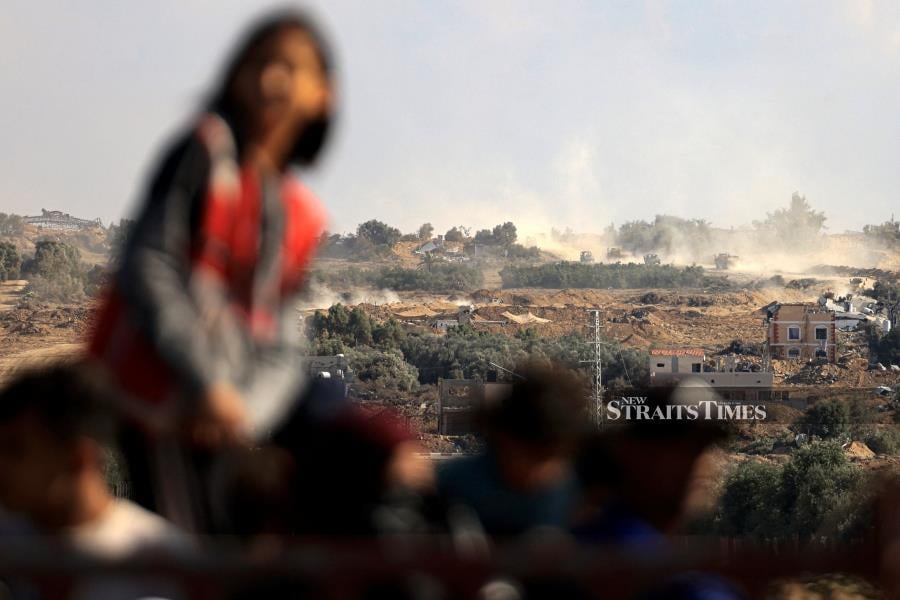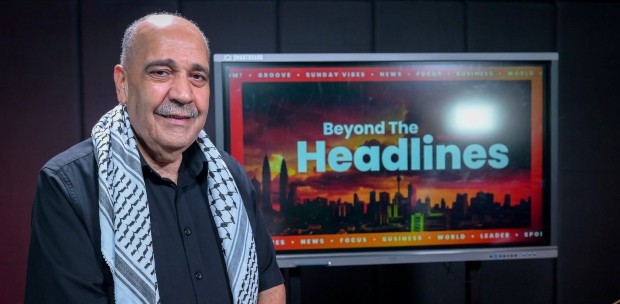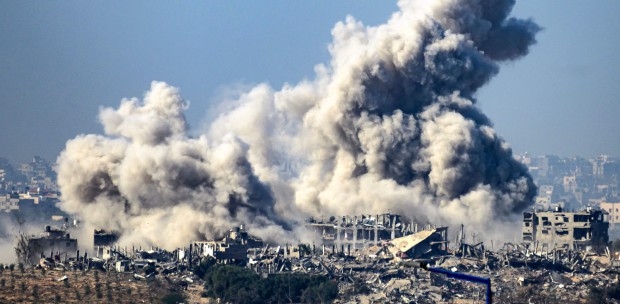RAMALLAH: A corridor of death and humiliation – that is how Palestinian journalist Salwa Al Rabiah (name changed to protect safety) described her journey through Salah al-Din Street, designated by the Israeli regime as a "Humanitarian Corridor" for the movement of thousands of Gaza residents from north to south.
"On the morning of Nov 12, we had to move out of northern Gaza towards the south through Salah al-Din Street because the hospital we were sheltering in was targeted by Zionist forces," Palestinian News Agency (WAFA) reported Al-Rabiah as saying.
She had previously sought refuge in Al-Quds Hospital with her 10 family members after their apartment in Gaza was destroyed by Israeli occupying forces.
Al-Quds Hospital, supervised by the Palestine Red Crescent Society, is located in Gaza City and is the second-largest hospital on the Gaza Strip after Al-Shifa Hospital.
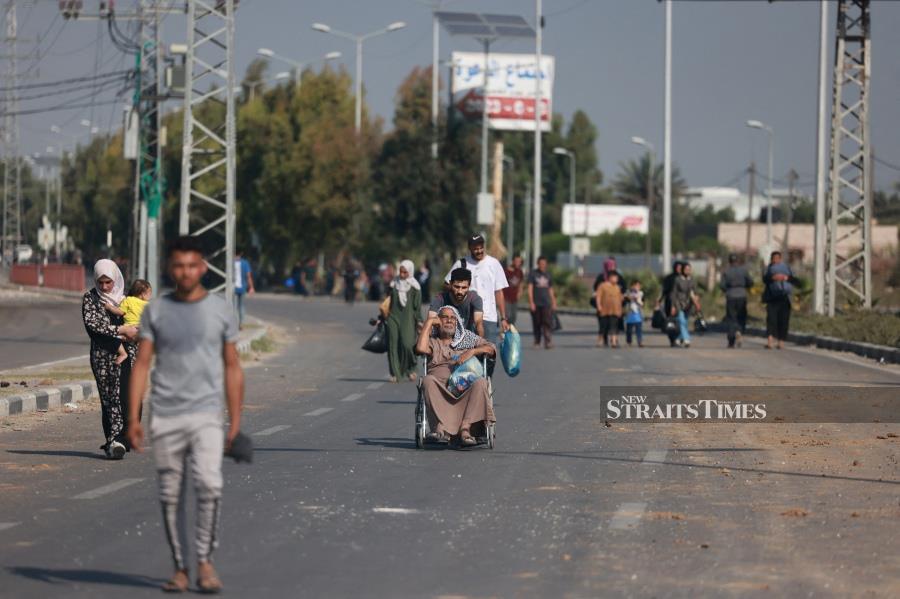
Al Rabiah stated that when they reached a certain area, Israeli forces stopped the vehicles, and they were instructed to get out and walk in a group.
"Dozens of Palestinian families in the detained vehicles had no choice but to comply with the orders.
"Each family carried their children and belongings, walking in front of armoured vehicles that observed us throughout the 14-kilometre journey to Wadi Gaza for over ten hours," WAFA quoted her as saying.
"At each roadblock, we were detained for over an hour. Women were subjected to sexual assault, and some had their jewellery confiscated. Moreover, some individuals were forced to undress in very cold weather in front of all of us.
Describing the conditions while sheltering at Al-Quds Hospital, she said the hospital became a refuge for about 15,000 people – with extremely cramped conditions, a shortage of food supplies, and a lack of clean drinking water.
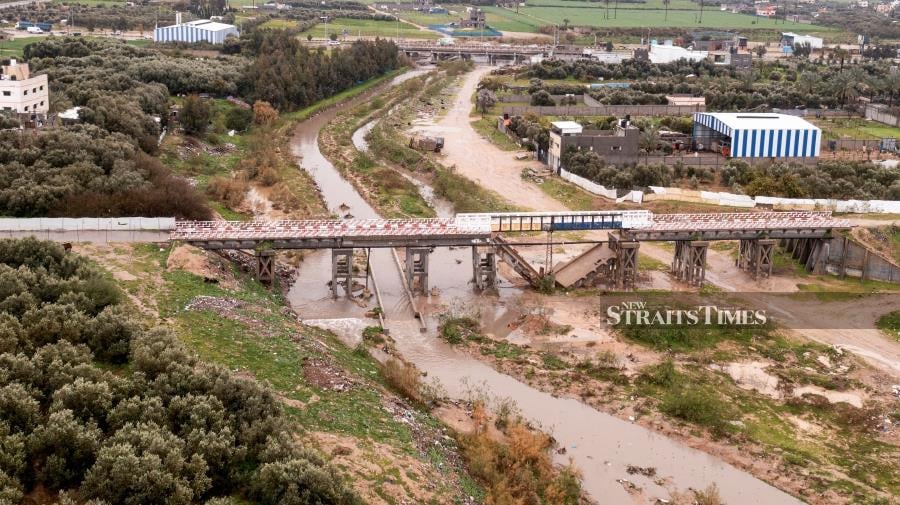
"The situation worsened when we received a warning that the hospital would be attacked. We lived in fear and anxiety but tried to reassure each other, even though we knew the Zionist regime would indeed attack and kill us all, as happened at Al-Mu'ammadani Hospital earlier.
"After being besieged for 20 days, on Saturday the Israeli forces decided to cut off electricity, water, and telecommunication connections completely before launching the attack. I sought help through social media and contacted the Red Crescent Society, but they said the timing was not right and asked us to wait for the rescue operation," said Al Rabiah.
Meanwhile, another witness who was one of the last people successfully evacuated from Al-Quds Hospital said that he and and the civilians sheltering in the hospital, including other patients, left the hospital complex carrying white flags for less than 50 metres when the Zionist forces fired live bullets at them and forced them to turn back to the hospital.
They were then directed to exit through another route towards Salah al-Din street.
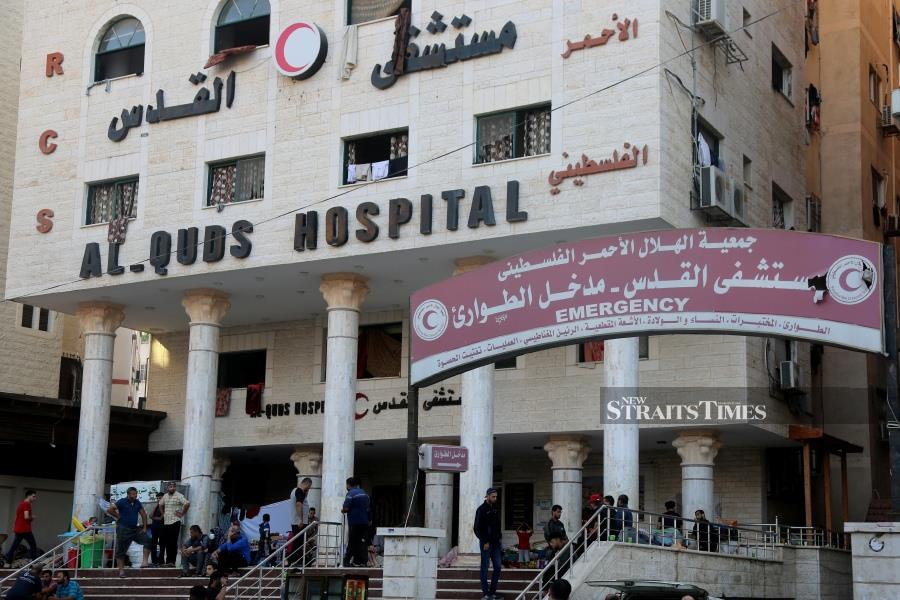
"After two hours of walking, some among us became targets of sniper fire. Finally, we reached Salah al-Din street, surrounded by armoured vehicles on the sides of the road. Then began the most humiliating moments of our lives.
"Zionist forces threw dust in our direction before asking us to surrender our identification cards. After that, some youths were called and were asked to undress in front of us. I and some others were directed to enter a hole for interrogation," he said.
The witness added that the Zionist forces also interrogated doctors and Red Cross officials. A doctor, Dr. Ala' Miqdas, was detained, and some individuals were called to face a pile of sand.
"Later, we witnessed a young man being shot, and his fate is unknown. Meanwhile, six other young men were forced to bow in homage to the colonial flag while rifles were aimed at them."
The operations of Al-Quds Hospital in Gaza completely ceased on Sunday due to a lack of petrol and electricity supplies. In addition to being besieged by armoured vehicles, the hospital building was repeatedly attacked and shelled with mortars, killing patients and residents seeking shelter inside, according to WAFA.
On Saturday, the Palestinian Ministry of Health announced that 26 out of 35 hospitals in the Gaza Strip had completely halted operations due to a lack of petrol supplies and interrupted electrical supply.
According to news reports, at least 13,000 Palestinian residents have been killed, with thousands more severely injured in the relentless Israeli forces' attacks on Gaza since Oct 7. --BERNAMA-WAFA


